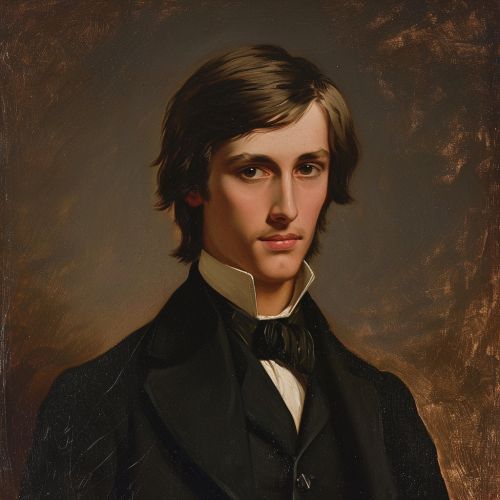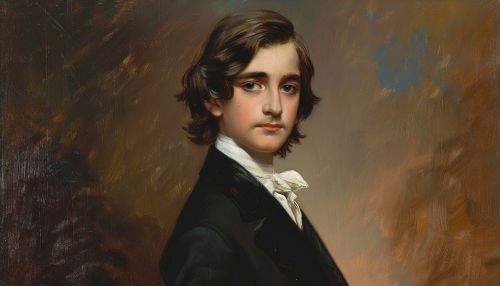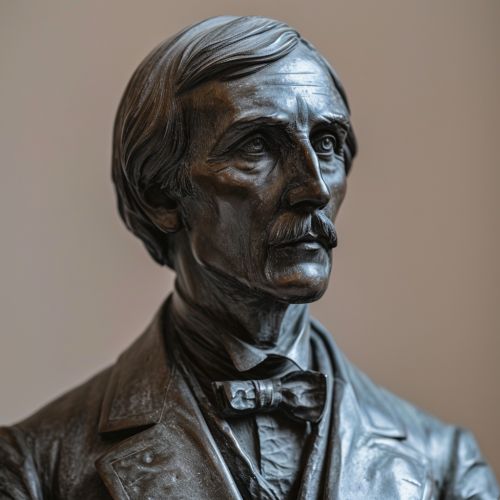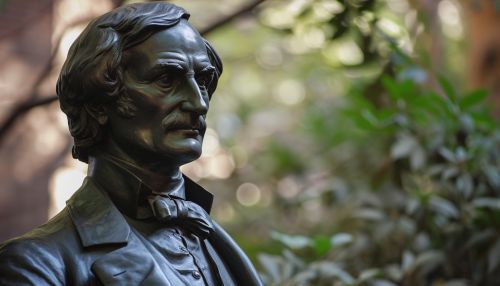Ralph Waldo Emerson
Early Life
Ralph Waldo Emerson was born on May 25, 1803, in the thriving seaport town of Boston. He was the son of Ruth Haskins and the Rev. William Emerson, a Unitarian minister who descended from a well-known line of ministers. Emerson's father, who called his son a "remarkable boy," died in 1811, less than two weeks before Emerson's eighth birthday.
Emerson was raised by his mother and aunt, and he attended the Boston Latin School, which was founded in 1635 and is both the oldest public school in America and the oldest existing school in the country. He entered Harvard University at the age of 14 and proved to be a competent, if not brilliant, student. He graduated in 1821 and taught school while preparing for part-time study in the Harvard Divinity School.


Career
Emerson's career began as a Unitarian minister but shifted when he left the ministry over theological differences and began writing and speaking more widely. He became one of the leading voices of intellectual culture in the United States, pioneering the American Transcendentalist movement of the mid-19th century.
His first published work, "Nature" (1836), outlined his main ideas and established him as a major figure in the Transcendentalist movement. His other significant works include essays such as "Self-Reliance," "The Over-Soul," "Circles," "The Poet," and "Experience."
Emerson's philosophy is characterized by its reliance on intuition as the only way to comprehend reality, and he developed the concept of the "Over-Soul"—a supreme mind that every man and woman share. He believed in individual freedom and the ability for mankind to realize almost anything.
Influence and Legacy
Emerson's influence on American literature and thought is immeasurable. He is credited with coining the phrase "American Scholar," which became a popular term for the ideal American intellectual. His ideas about nature, freedom, individuality, and the role of the artist have had a lasting impact on American culture.
Emerson's legacy is complex and cannot be easily summarized. His ideas continue to be debated and interpreted, and his work continues to be studied in schools and universities around the world. His influence can be seen in the work of a number of major American writers, including Thoreau, Whitman, and Dickinson.


